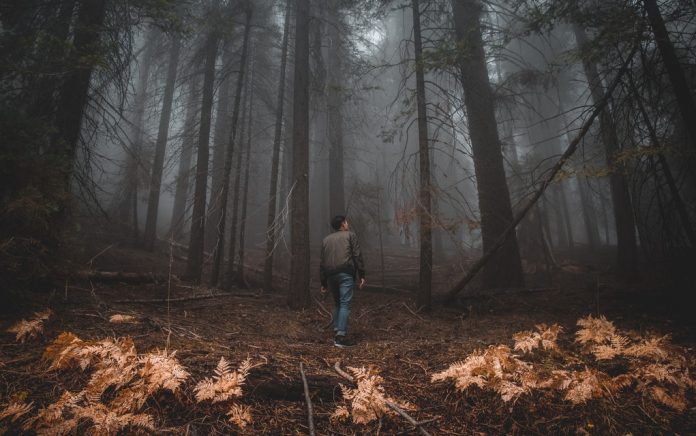
The forest is beautiful and inviting. The birds are chirping and the weather is fine, so you decide to step off the trail for some cross-country hiking. What could go wrong? The next thing you know, you are deep in the woods and have lost sight of the trail. You are lost.
Stay Put!
Once you realize you are lost, the first thing you need to do is find a clearing in the trees. Then stay put. Rescuers will have an easier time finding you if you are stationary. Finding a clearing is important, as it gives aerial searchers a higher likelihood of seeing you.
Whistles, Fires and Mirrors
There are a lot of ways to signal to Search and Rescue (SAR) to help them hone in on your location. Whistling may seem absurd at first, but the sound can travel farther than most people think. Also, it’s not a common noise found in the wild. If you have an emergency whistle this is a great way to attract rescuers. If you didn’t carry an emergency whistle with you on your hike, being able to whistle with your fingers will also work.
Signal fires are also a good way to help searchers find you. A big fire can be seen from miles away at night. If you have a healthy supply of fuel, burn away to help rescuers spot you. Be sure to control the fire; you do not want to make your situation worse by accidentally starting a forest fire while you are lost. Smoke signals can aid in your rescue as well. By burning wet wood or fresh greenery, you will create large plumes of smoke which can be seen from long distances during the day.
You may need to conserve your fuel so as not to risk running out if it’s not readily available. Remember it tends to get cold at night, even in the summer, if you’re on a mountain. Fire alone will not keep you alive if the temperature drops. You will need to find or build a shelter to keep you out of the elements and conserve heat. Additionally, if you cannot locate or build a shelter and it starts to get cold, you may have to disregard the stay-put rule. Walking will help to keep your body temperature up. If you see lights, head toward them as they are likely a sign of someone who can potentially help you. If you do not reach them before dawn you can try signaling again, and this time you may be closer to someone who can see them.
Carrying a small mirror is always a good idea when going out in the wild. The mirror can reflect sunlight into the sky or in the direction you believe rescuers may be located. Additionally, a mirror can be used in a pinch to start a fire, such as those mentioned above. Granted, this will need sunlight to work.
The Rule of Three
In survival prepping, there are many rules of three. For this scenario, it’s three consecutive blows on a whistle, three flashes from a mirror or three shots from a firearm. These are international signals for distress and should be used to call for help should the need arise. Three separate fires are also a sign of duress.
Personal Locator Beacon
Of all the ways to signal for help, a personal locator beacon (PLB) is the best. These transmitters send out a personal distress signal to a satellite that will provide your exact location to rescue teams. In the United States, the National Oceanic and Atmospheric Administration (NOAA) monitors these signals. When a signal is detected, the information is sent to local rescue teams who can use it to find the device. Some PLBs come equipped with strobe lights to give rescuers a helping hand when searching for you.
When purchasing a PBL, it must be registered with NOAA. The registration is free of charge.
In conclusion, there are a few ways to signal for help when lost:
- Blow an emergency whistle or whistle with your fingers.
- Start a fire and/or use smoke signals.
- Use a reflective surface to sign for help.
- Use a Personal Locator Device.
As always, the best way to survive is to be prepared!
Have you ever gotten lost in the woods (or anywhere else), or know someone who has? If so, would the information above have helped? Reply to your email and let us know, we would love to hear from you!
Copyright 2021, TheSurvivalGuide.com














